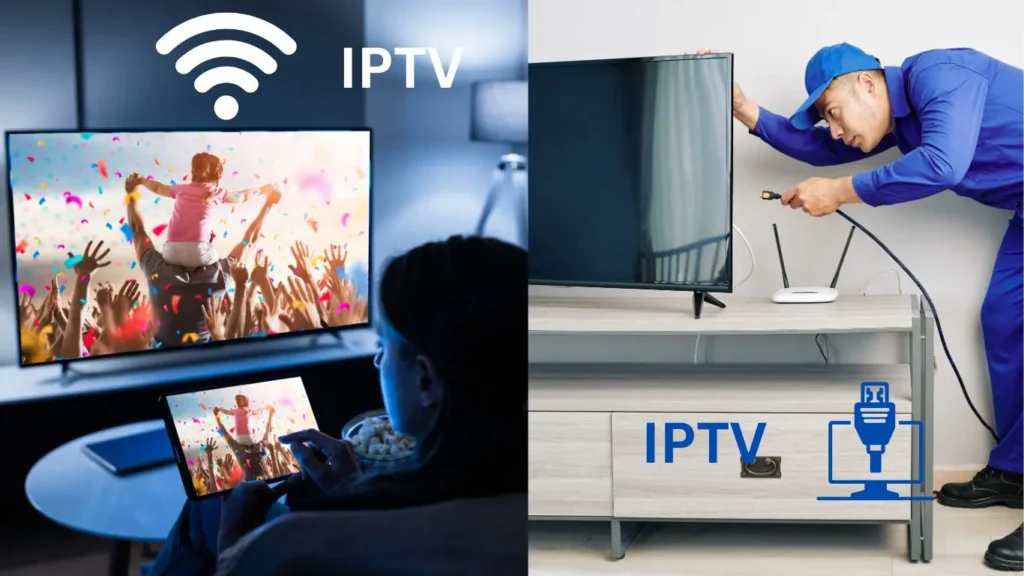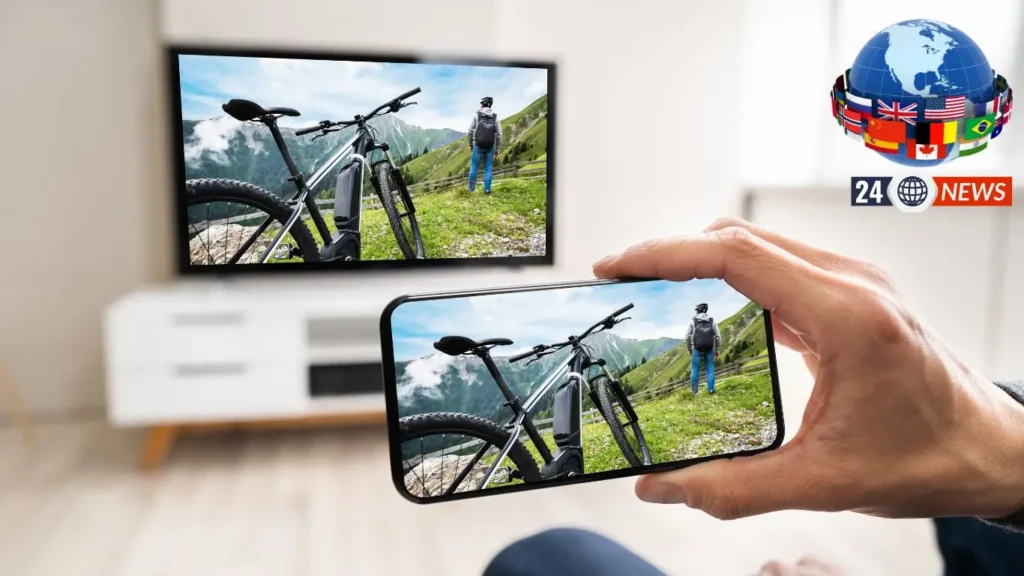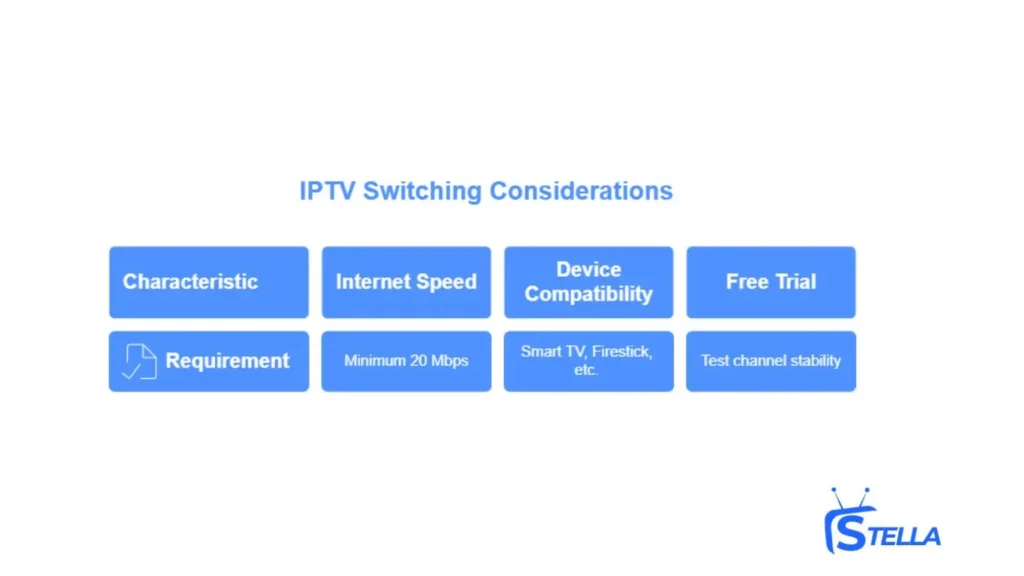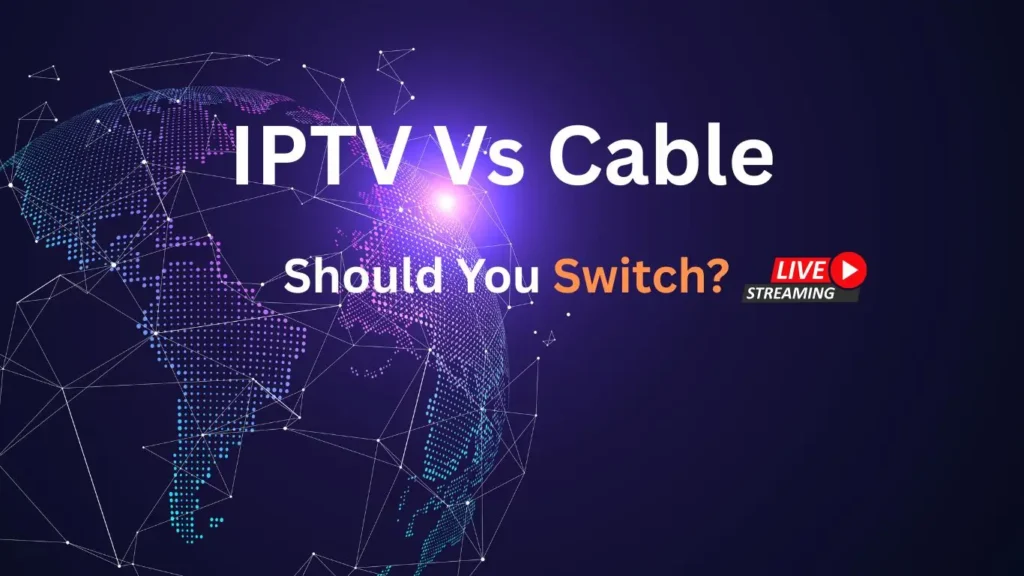Ever wondered why more people are dropping cable TV subscriptions and turning to IPTV? It’s not just a trend—it’s a movement. The way we watch content is changing, and flexibility is key. If you’ve ever felt stuck with expensive cable bills or frustrated with channel limitations, you’re not alone.
Let’s explore all the differences between these two popular ways ( IPTV vs cable TV ) of watching TV to help you make an informed decision
What is IPTV and How Does It Work?

IPTV in Simple Terms
IPTV delivers television content over the internet instead of traditional cable or satellite. If you’ve ever streamed or watched YouTube, you’ve already used a form of IPTV.
How It’s Different Technically
- Cable TV relies on coaxial cables or satellite signals.
- IPTV uses your internet connection to stream content.
Instead of fixed schedules and location restrictions, IPTV lets you watch what you want, when you want, and where you want.
Real Talk: Why I Switched from Cable to IPTV
From my experience, I used cable for years and switched to IPTV for many reasons. One of the biggest was the high cost and limitations of cable. With IPTV, there are no limits. What I really love about IPTV is that I can use it anywhere I travel—in any country and on any device
This level of freedom was impossible with cable.
Feature Comparison: IPTV vs Cable TV
Let’s look at a side-by-side breakdown:
| Feature | IPTV | Cable TV |
|---|---|---|
| Availability | Global (via internet) | Local/regional |
| Cost | Lower monthly fees | Higher due to equipment & bundles |
| Device Support | Phones, tablets, Smart TVs, laptops | Mainly TVs only |
| Content Access | On-demand & live TV | Mostly scheduled content |
| Contracts | Often no long-term contracts | Usually long-term with penalties |
| Portability | Watch anywhere with internet | Location-dependent |
Streaming Freedom: Why Portability Matters
Watch From Any Country

Whether you’re on vacation, visiting family, or relocating, your IPTV subscription travels with you. With cable, you’re locked into a regional service. With IPTV, just connect to the internet and stream.
All Devices
You’re free to use your IPTV on your preferred device: Smart TV, Android box, Firestick, iPhone, laptop, or tablet. There’s no need for multiple subscriptions or hardware limitations.
The Cost Factor: Save More, Watch More
Hidden Fees with Cable
Cable providers often add hidden fees for HD channels, extra receivers, and premium content. IPTV usually offers everything; sports, movies, kids’ shows without stacking your bill.
Pay for What You Want
Most IPTV services offer flexible monthly plans. Cancel anytime. No penalties. No stress.
Content Variety: One Subscription, Endless Options
With IPTV, you’re not stuck flipping through 500 channels you don’t watch. Many services let you access:
- Live sports
- Movies and series (even the latest releases)
- International channels
- Adult content (optional)
- Kids programming
All in one place. No more switching apps or waiting for reruns.
Common Myths About IPTV (Busted)
“IPTV is illegal.”
Not always. There are legal IPTV services that work just like any other streaming platform. The key is choosing providers with proper licenses.
“The quality is poor.”
Totally depends on your internet connection. With a stable line, IPTV offers 4K, FHD, and smooth streaming—often better than cable.
“You need to be tech-savvy.”
Nope. Most services are plug-and-play. Set it up once and enjoy.
Things to Consider Before Switching

Internet Speed
For HD and 4K IPTV, a stable internet connection (minimum 20 Mbps) is ideal.
Device Compatibility
Check that your preferred device (Smart TV, Firestick, etc.) is supported. Most IPTV apps cover all major platforms.
Try Before You Buy
Many IPTV providers offer a free trial. Use it to test channel stability, streaming speed, and content selection.
Personal Tips for New IPTV Users
- Always use a VPN if you’re traveling to countries with content restrictions.
- Check the channel list before subscribing—make sure your favorites are there.
- Start with a 1-month plan to test the service without commitment.
- Ask about support. A good IPTV service should offer help if you have issues setting up.
Final Thoughts: Is IPTV Worth It?
IPTV and cable TV both have their pros and cons. Cable TV offers reliability but comes with a high cost, while IPTV stands out for its flexibility, affordability, and customization
If you value flexibility, affordability, and streaming freedom, and saving money, IPTV is a no-brainer..
Still not sure? Test a trial version for 24 hour. Like I said, I can watch IPTV while traveling and living in different countries.
Ready to Cut the Cord?
Explore trustworthy IPTV services like Stella IPTV , try a free trial and start streaming your way.
Need help choosing a provider? Check out our step-by-step guide to selecting the best IPTV service.
FAQ
What are the disadvantages of cable TV?
Cable TV is expensive, often requires long-term contracts, and you’re limited to watching on one device in one location.
Is it cheaper to stream TV than cable?
Yes! Streaming with IPTV is usually much cheaper. You can pick flexible plans and avoid extra fees that cable companies charge.
Can I watch live TV on IPTV?
Absolutely. Most IPTV services offer live TV channels, including sports, news, and more—just like cable but online.
Why do people still pay for cable?
Some people stick with cable because they’re used to it or don’t know about better options like IPTV.
sources :

